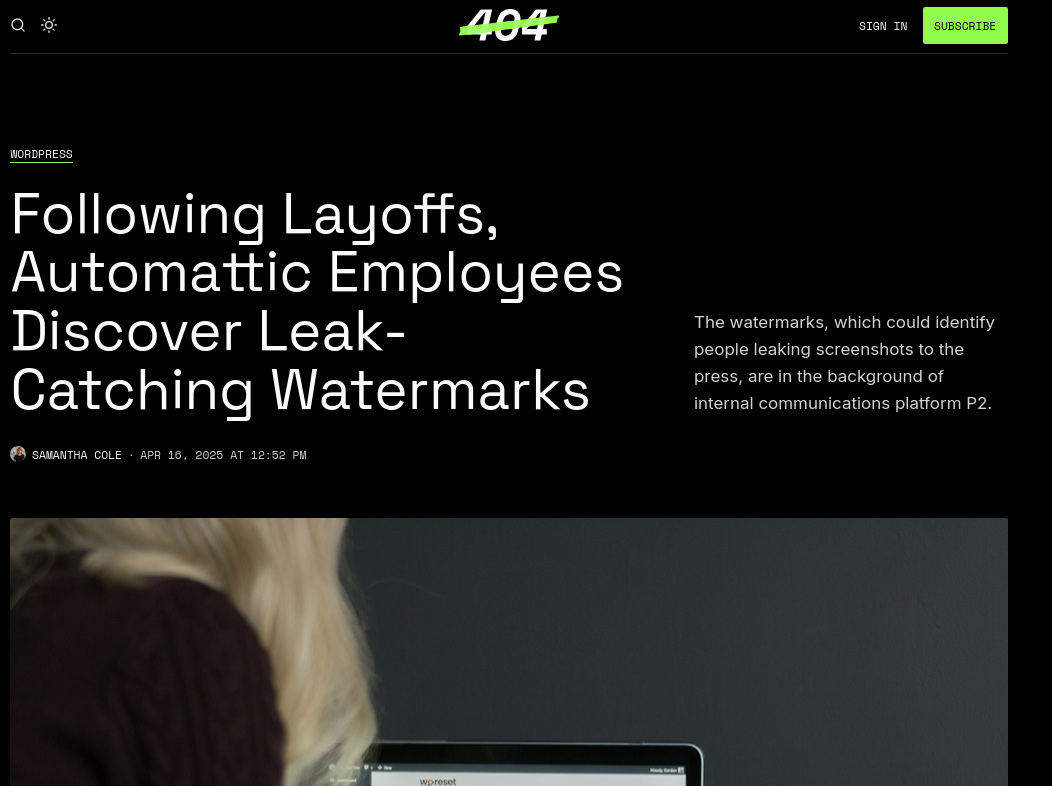Fedora Already Lost Its Soul Under IBM
I am not a stranger to Fedora. I used the first two versions of Fedora. I later used some more versions of it, but not after 2010. It just gave me too many problems/trouble (I wrote a lot about it in my personal site back then*).
Fedora used to be very strict compared to many other distros and it had attracted very bright volunteers.
Now that Fedora has a new lead and a buzzword direction (Microsoft/IBM hype) there is also a new release [1, 2, 3], less than two weeks after the appointment of the new leader, who swims in buzzwords.
Fedora is (of course) used to test things before they go to proprietary RHEL. More people can see that and since IBM started hiding source code many Fedora volunteers have jumped ship.
From what we can gather, based on the wiki, the chats and the planet (of Fedora), not many people are still involved in the project. IBM made cuts. Many non-staff left over time (or became a lot less involved).
"I used to work at Red Hat and most of the US engineering base is in MA, not in Raleigh, NC. Raleigh is the HQ so has all of the back office functions and people from all functions as well but most US based engineers are in the MA office outside of Boston," somebody wrote hours ago about this report about IBM convergence or bluewashing ("IBM to combine key division with Red Hat unit"). "The CEO now is Matt Hicks (not Jim Whitehurst who sadly left after the IBM acquisition) and Matt was the Red Hat engineering leader so was based in MA as well. I do not know if there will be lay offs, however they are different product areas of middleware. I am assuming they will integrate where they can. Many middleware engineers are around the globe."
Critics of the company and of DEI showed a recent message from Matt Hicks: "In an email to Red Hat (IBM) employees, leaked to The Lunduke Journal, CEO Matt Hicks outlines where DEl [sic] is to be removed within the company." (Well, the Fedora DEI room became more private and less active about 10 days ago)
Perhaps, like in Automattic, the threat will be seen ....... or described ...... as whistleblowers, not Microsoft and Windows. █
___
* Ryan, who also used to use Fedora (and wrote a lot about it over the years, even decades), says in IRC: "I no longer use Fedora on anything and haven't for a while. It seems that maybe the only distribution actually committed to its native package manager is Debian, or Arch, and since I already know how to use Debian and have for over 25 years, it's easier to stick to that, including in Crostini on my Chromebook, where I could theoretically have as many distributions as there are space for. Google lets you go off the rails with Crostini and install whatever you want, but the default and supported distribution is the Stable release of Debian, where of course backports functions. I thought that I hated Flatpak when I was only using "native Linux" (that is on a PC), but I really hate it on Crostini. Crostini has a proxy from wayland or X called Sommelier. It functions well with applications from Debian or even AppImages, but not Flatpaks. The titlebars are all messed up on Flatpaks. I don't know why and sometimes I don't care. But the Debian packages always work better so unless they're just not packaging something for Debian, I never use a Flatpak on my Chromebook. It's even more jarring than trying to use Windows programs in Wine on Crostini in a Chromebook, and that's saying a lot. The push for Flatpaks came from Red Hat, and in a lot of ways they really just encourage distributions to give a non-native approach to package management, which is how a lot of bad things can happen. Like security threats (untrusted builds, proprietary software, libraries not getting patched), the titlebar glitching on Chromebooks, and just overall bloat and the sandbox messing with the user if they need to change something, or sometimes even bricking the application. I think the idea of pushing non-native builds is just making everything worse, because software needs to work well with whatever system it finds itself and you don't get that really when the person who built it doesn't even run the same OS, or version of the OS, as you do. Fedora wants to move to Flatpaks because they have IBM pushing it hard, they want a system where the main file system is mounted read-only because they saw a Mac do it. It's just insane and I think users don't like that when your target is power users who like to mess with stuff and you tell them "No messing with that!" Whoever designed this maybe didn't set out to create something even worse than Windows, but it's what it is. it doesn't just have versioning hell, it's really full of bugs, or in some cases design goals that get in the way of the program running right. One of the things Chrome OS does do well is I really don't have to care much about what the system is doing because it tends to itself. Even the Linux container (Crostini) hasn't given me any real trouble. The firmware doesn't glitch out and cause problems with the OS, because it's designed to work together, unlike UEFI and Linux. The main reason I no longer use a PC is the firmware. You may eventually get it working with some OS other than Windows, but they deliberately make it hard. They do no testing. And it's such a ramshackle development that it's amazing when it even mostly works. It's not surprising to me that people are buying Chromebooks then rigging them to run Linux or even Windows (replacing ChromeOS) after the fact. It's really hard to get away from UEFI and get an x86 system otherwise. Of course UEFI causes problems with Windows. They just special case everything and hide the errors better. Including covering them up with the bootsplash. They disable power management features that don't work due to firmware and chip bugs. They hide error messages. A modern PC really has three problems. Windows, UEFI firmware, and the Intel processor. You rig up a Chromebook to run Linux, you get rid of 2/3 of those pain points, and can still run Windows programs in Wine. It's easier to buy a Raspberry Pi if you don't care about x86 binaries at all. That may be my next stop years from now."


